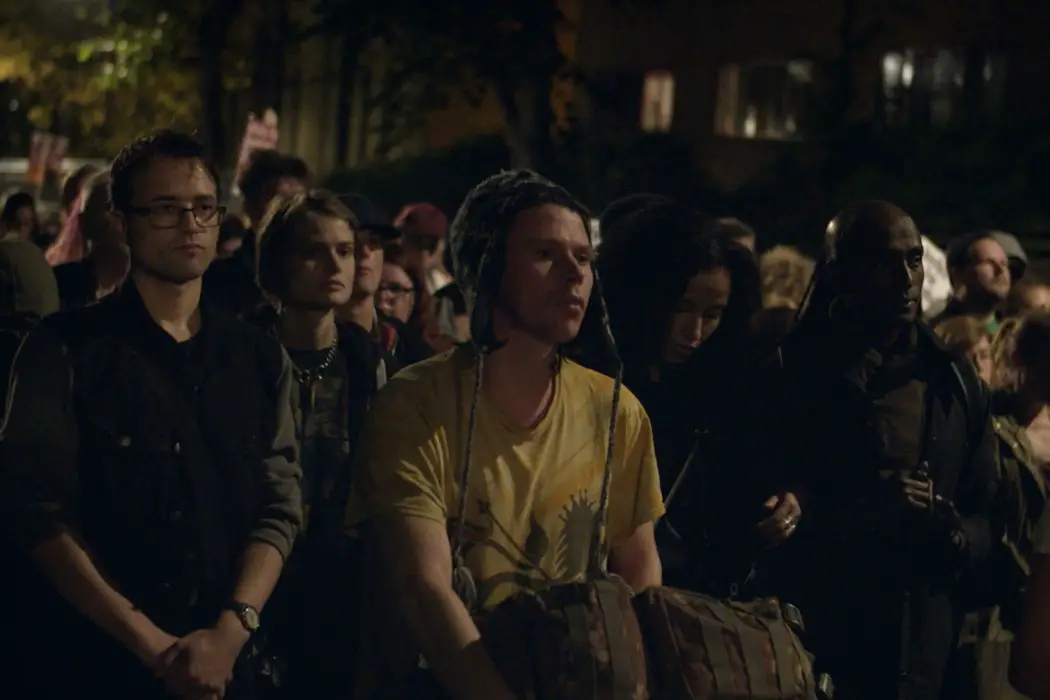Melbourne Documentary Film Festival 2019: TRUST MACHINE: THE STORY OF BLOCKCHAIN

Alex is a 28 year-old West Australian who has a…
Actor-turned-director Alex Winter’s prolific documentary work has made him the definitive filmmaker for capturing today’s latest technological trends – whether it be file-sharing in his first documentary Downloaded, the depths of Silk Road in Deep Web or hell, even showcasing the latest YouTube stars when he helmed The Smosh Movie back in 2015.
His slick style lies somewhere between Louis Theroux and Morgan Neville, imbued with a fascination of the rapidly shifting internet climate and how these changes can bring about financial and socio-political innovations that can be both mutually harmful and wonderful – luckily he keeps his glass half full when gazing at the possibilities. This time he returns with Trust Machine: The Story of Blockchain in order to answer one of the major questions that was probably tossed around every family dinner this past holiday season – what is Bitcoin?
Cryptocurrency Made Clear
To hacker and activist Lauri Love, who Winter uses as our gateway into this world, Bitcoin and the Blockchaining technology that runs it, it represents control. To the stock market, it’s a risky but lucrative investment. To the government it’s a threat, and as this film shows us in a series of globe-trotting vignettes, it has the ability to change the world for the better – if we choose to do the right thing with it. Detailed and generously informative, this film will truly satisfy any curious individuals that have heard the terms “bitcoin” and “blockchain” numerous times but have absolutely zero frame of reference as to what they actually mean. There’s plenty of informal material here for when that family dinner question arises again, you can actually articulate an answer above “I dunno, internet money I guess” – so what is the answer?

Told to us by Rosario Dawson’s smooth voiceover, in layman’s terms, Bitcoin is the first (and still most prominent) cryptocurrency, a type of online financial tender that is free of any form of power or centralised control. Taken from a theoretical manifesto written by “Satoshi Nakamoto” (an identity that has never been verified), the concept of Bitcoin was created as a way to take the internet back to its original intentions, an international network with no centralised power or authority, a utopian ideal that was corrupted in the 1980’s and 90’s as more services, such as internet providers, began to dominate the platform.
Blockchaining, as the film puts it, is essentially the “flux capacitor” for Bitcoin, the underlying technology that powers the currency. One of its major elements is that every Bitcoin transaction is recorded, a “perfect ledger” that prevents any form of deceit or fraud, and this is where the big money comes from. This system introduced a new form of gold-rush mining, where dead parrots and pick-axes were replaced by PCs and programming, where users use massive computing rigs to “mine” blockchains for Bitcoins, whose value has skyrocketed since its initial launch – in the several years that the film covers, the value goes from 5 cents to $12,000 a piece, hence the sudden interest from so many parties.
Global Gains
With any relatively new technology, several predictable trends occurred; copycats emerged, its sudden increase in value had it quickly classified as another Ponzi scheme (with the “Tulip Mania” label liberally applied by many outraged television presenters), and the US government immediately felt threatened, thanks to its credible circumvention of their broken financial systems and any major business that is powered by a centralised system (which includes Netflix, Google and YouTube).

Much like the internet’s original intentions, Winter keeps his scope global, focusing on the positives that this technology has kickstarted, beginning in Nairobi, Kenya, where blockchaining has allowed its citizens to earn a middle class wage, in the midst of a crumbling economy. In some of the other countries we visit, such as Venezula, Russia and North Korea, we witness its assistance in forming decentralised protests, preventing identity theft (especially after the recent revelations of Facebook’s data-sharing), creating paperless passports for immigrants and even forming direct connections between audiences and artists, which is seen when Slovenian music producer Gramatik successfully sells shares in his career – the benefits are endless, and the film is sunnily optimistic about each option.
Intertwined with these episodes is the story of Lauri Love, a British hacktivist whose exploits in discovering secret government data threw him into some serious hot water with the US government, who as we see throughout the film, aggressively tried to extradite him to America to effectively throw the book at him. Mirroring his hostile treatment with the tragic tale of Aaron Schwartz, the Reddit co-founder who committed suicide at 26 when he faced serious jail time for similar online breaking-and-entering charges, Winter profiles just how forceful the myopic US Government can become when they feel genuinely threatened in any way – the fact that these monopolistic establishments can be so fearful of the actions of a single 20-something British civilian is the exact type of power that Bitcoin can deliver.
As its scale and amplitude increase, so does Winter’s optimism for its future – it’s not so much the developments of the past decade that excite him, it’s moreso the potential developments of the next decade. To highlight this shift, the film pivots back to a similar situation in the 1990’s, where a young Jeff Bezos, years before his billions, spoke on public television about the possibilities of online shopping with his website Amazon, whose lowly office housed a logo that was crudely spray-painted onto a bent piece of cardboard. As Vinay Gupta so succinctly puts it “old stuff is just weird stuff that you got used to”: for blockchaining to become the norm, the film muses, just takes time.
Trust Machine: Conclusion
Driven by Bill Lasswell’s synthetic beats, Alex Winter’s Trust Machine: The Story of Blockchain tells us a wholly new story in a very old school fashion. This isn’t meant as a knock when it’s said that there’s nothing particular original about its components, a standard mixture of talking heads, archive materials and flashy title cards (a description which could also be applied to Netflix’s recent Fyre Festival documentary), because it’s a not-broke-don’t-fix-it formula, and it’s perfectly tuned into Winter’s intentions.
Trust Machine is a perfect introduction into a very complex field, accessible and informative to those who are unfamiliar with Bitcoin and Blockchaining, but still enlightening to those who do. The future is unclear, but one thing is for certain – we can trust Alex Winter to elegantly guide us through whatever happens next.
What are your thoughts on the current state of Bitcoin and cryptocurrency? Let us know in the comments!
https://www.youtube.com/watch?v=UUJYJCG2G8k
Does content like this matter to you?
Become a Member and support film journalism. Unlock access to all of Film Inquiry`s great articles. Join a community of like-minded readers who are passionate about cinema - get access to our private members Network, give back to independent filmmakers, and more.













